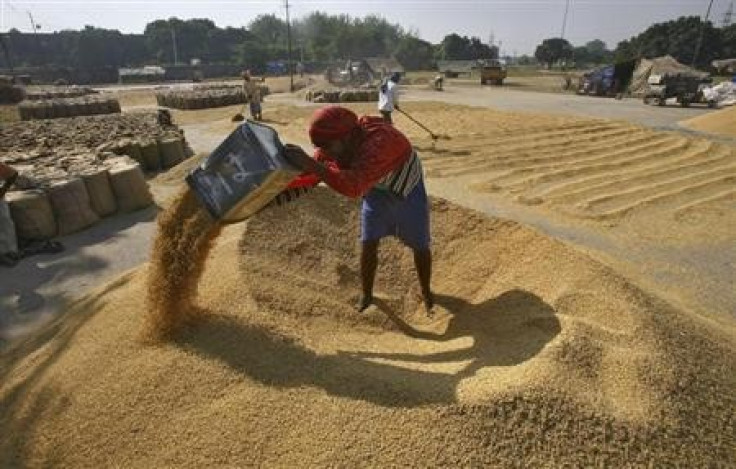UK calls for sustainable agriculture to meet global food security needs at G20 meet
Thérèse Coffey, UK's Secretary of State for Food and Rural Affairs made it clear last week that the government is committed to global food security.

The UK government has reiterated its commitment to global food security in a recent global event of the G20.
Thérèse Coffey, UK's Secretary of State for Food and Rural Affairs made it clear last week that the government is committed to global food security and they are continuing its efforts towards improving food security, especially by means of sustainable agriculture.
Why is this crucial?
As per the 2022 Global Food Security Index (GFSI), which is the 11th edition of GFSI, the global food environment isn't good for the third consecutive year as price shocks and other factors affect food security. Initially, the global food security situation had enhanced between 2012-2015 as the world's overall GFSI score increased by six per cent but it has been on the decline since then.
At present, Finland tops the list with an 83.7 score whereas the UK stands in 9th position with a 78.8 score. The parameters for this index include sustainability, availability and affordability amongst many others. The GFSI is created by analysing the food security situation of 113 countries based on 68 parameters.
Syria, Yemen and Haiti are at the lowest rank in the index which indicates how war and unrest are threatening food security.
In such a situation, it is crucial to ascertain our commitments to global food security and the UK's standpoint is important at this juncture.
Countries need to come together
The G20 Agriculture Ministers met at the southern Indian city of Hyderabad last week to discuss global food security issues. In that meeting, the UK food and rural affairs secretary made an appeal to global leaders urging them to come forward and take action towards sustainable agriculture. The call is to harness the full potential of nature to make agriculture better so that it provides food on everyone's table. This is much needed for future generations.
The countries worked together in the meeting to address issues related to food security and nutrition including the environmental impact and price shock problems. Ensuring that the food and agriculture systems worldwide are resilient enough to tackle price shocks is the key agenda now, followed by the switch to sustainable agriculture for reducing environmental impact.
Addressing unsustainable agricultural practices that lead to deforestation was also one of the main areas of concern. For that, they underlined, a sustainable food supply chain needs to be formulated so that such agricultural practices aren't beneficial. Also discussed in the meeting are long-term actions of supporting rural communities and farmers so that the food demands of this ever-growing population are met.
The Food and Rural Affairs secretary made it clear that sustainable agriculture is at the centre of all these issues.
Building more resilient food security must be an urgent, ongoing priority for G20 and sustainable agriculture must be at the heart of our efforts.
The UK called for protecting the power of nature along with supporting it with technological innovation. Together, it is the most cost-effective way to scale up.
As well as making the most of science, tech and innovation, we need to recognise that protecting and supporting the power of nature is essential and in many cases the most effective and cost-effective way to roll out solutions at scale.
Scaling up sustainable agriculture
The discussions mirrored the UK government's plan to scale up sustainable agriculture worldwide following the announcements made at the Agriculture Innovation Mission for Climate (AIM for Climate) Summit in Washington last month.
There they pledged to invest £3 million to develop a new consortium which will identify, test and scale up the use of alternative fertilisers that can be used for sustainable agriculture. These fertilisers will increase the yield and soil quality. It will promote agricultural productivity and soil health.
This also upholds the government's investment in the agricultural community back in the UK with a whopping £168 million or more grants for farmers to support food production, and innovation and to improve animal health and welfare. The grants also include a scheme of rolling out Sustainable Farming Incentive which seeks to encourage sustainable agriculture through incentives for those who indulge in it.
Apart from that, the government has also allocated £30 million to new cutting-edge farming projects which seek to increase food production as well as make a stride towards net zero. Furthermore, last month the government announced 25 more projects under the Landscape Recovery scheme which will refurbish acres of British landscape and protect them.
© Copyright IBTimes 2024. All rights reserved.






